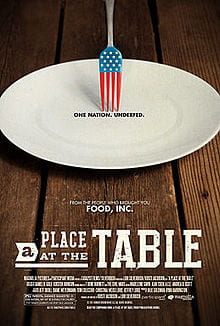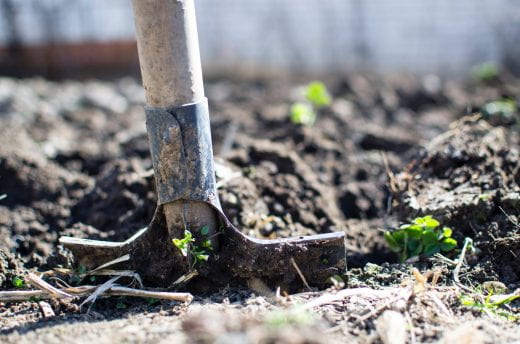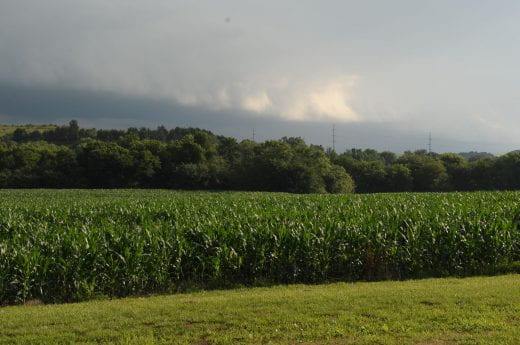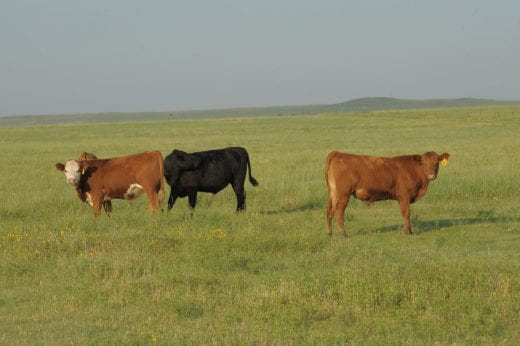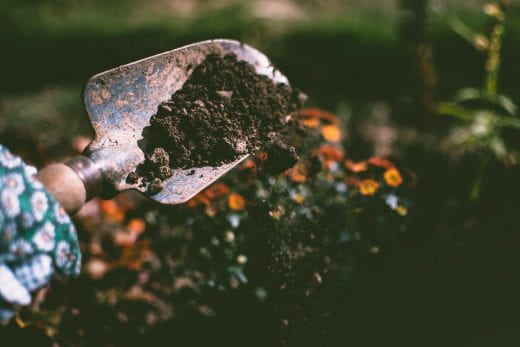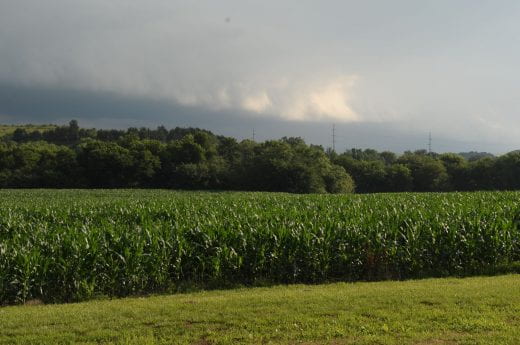Happy Halloween! And welcome to Better Kansas, where every Thursday we shed light on events, resources and other information designed to make your life, businesses, communities and state better. Share on social media and subscribe! – Mary Lou Peter mlpeter@ksu.edu
Better Living, Better Communities
A FEW WEEKS AGO, I WROTE ABOUT CHILD DEVELOPMENT and linked to a fact sheet on milestones that children typically reach in the first year. But what about the second and third years and so on? Check out Understanding Your Child’s Development for activities children often accomplish by certain ages. Remember, these are AVERAGES! For babysitters, parents, grandparents and ANYONE who’s trying to calm a crying baby, there’s even a section on that. Where is Dr. Spock when you need him?! For you Trekkers, that’s not Mr. Spock. Again, I digress!
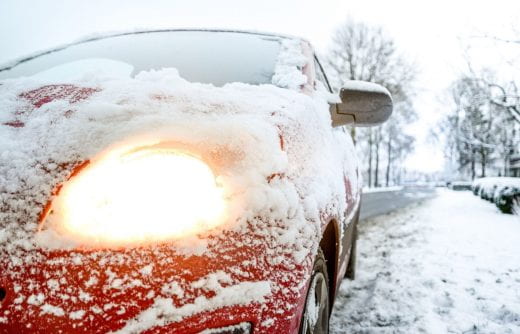 AS I WRITE THIS, WE’RE STARING WINTER RIGHT IN THE FACE! Listen to a Sound Living radio interview about what forecasters are expecting in the next few months and how you can prepare your home or car to avoid problems as the temperatures (and snow and sleet) fall. This was a good reminder for me to add to my own car … things like a phone charger, blanket, snacks and other items. And while you’re at it, consider giving your spouse, teenager, grown-up kid or friend an early Christmas gift of an emergency kit for their own car. These are not the kinds of things people tend to buy for themselves! It may not be as well received as tickets to a big concert, but …. 😊 Click here for a more complete list.
AS I WRITE THIS, WE’RE STARING WINTER RIGHT IN THE FACE! Listen to a Sound Living radio interview about what forecasters are expecting in the next few months and how you can prepare your home or car to avoid problems as the temperatures (and snow and sleet) fall. This was a good reminder for me to add to my own car … things like a phone charger, blanket, snacks and other items. And while you’re at it, consider giving your spouse, teenager, grown-up kid or friend an early Christmas gift of an emergency kit for their own car. These are not the kinds of things people tend to buy for themselves! It may not be as well received as tickets to a big concert, but …. 😊 Click here for a more complete list.
 WHAT BETTER WAY TO REACH MORE PEOPLE IN THE COMMUNITY IS THERE than training others to be trainers? That’s how the Master Food Volunteers program works in several communities across the state. Extension agents and specialists provide training to volunteers who are interested in food and nutrition. Those volunteers, in turn, work with others in their communities in myriad ways, from teaching children – and sometimes adults – basic cooking skills to safe food preservation, menu planning and much more. While you’re on the site, check out the “Making a Difference” reports for examples of MFV activities.
WHAT BETTER WAY TO REACH MORE PEOPLE IN THE COMMUNITY IS THERE than training others to be trainers? That’s how the Master Food Volunteers program works in several communities across the state. Extension agents and specialists provide training to volunteers who are interested in food and nutrition. Those volunteers, in turn, work with others in their communities in myriad ways, from teaching children – and sometimes adults – basic cooking skills to safe food preservation, menu planning and much more. While you’re on the site, check out the “Making a Difference” reports for examples of MFV activities.
Better Farming, Ranching and Gardening
 YEARS AGO, I LEARNED THE HARD WAY after a costly trip from the plumber, that we’re supposed to disconnect garden hoses from the spigot before it freezes. One of those Adulting 101 things I missed! Depending on your plumbing setup, not detaching them can lead to a burst pipe and interior water damage. And by the way, if you have a lawn irrigation system, they need the water blown out with an air compressor. Find further tips in the Draining Hoses and Irrigation Lines section of the Oct. 29 Horticulture 2019 Newsletter, along with other seasonal info about garden mums, fertilizing lawns in late fall and … roasting pumpkin seeds. Now there’s a left turn! Also found a YouTube video showing what can happen and why if you don’t detach those hoses.
YEARS AGO, I LEARNED THE HARD WAY after a costly trip from the plumber, that we’re supposed to disconnect garden hoses from the spigot before it freezes. One of those Adulting 101 things I missed! Depending on your plumbing setup, not detaching them can lead to a burst pipe and interior water damage. And by the way, if you have a lawn irrigation system, they need the water blown out with an air compressor. Find further tips in the Draining Hoses and Irrigation Lines section of the Oct. 29 Horticulture 2019 Newsletter, along with other seasonal info about garden mums, fertilizing lawns in late fall and … roasting pumpkin seeds. Now there’s a left turn! Also found a YouTube video showing what can happen and why if you don’t detach those hoses.
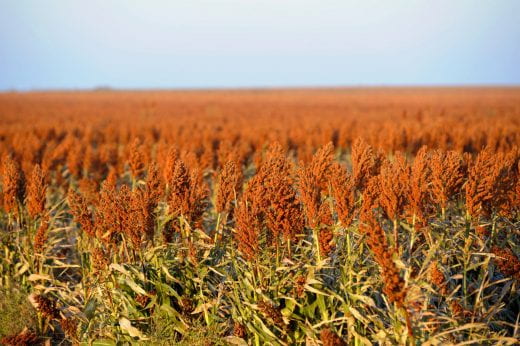 WE KNOW THAT THE VAST UNDERGROUND RESERVOIR OF WATER known as the Ogallala Aquifer, a critical source of water for parts of eight states including western Kansas, is depleting faster than it can recharge. So, figuring out the best ways to maximize the benefits of rainwater and nutrients for crops on southern Plains farms is the goal of a new research effort led by Kansas State University. In addition to the K-State team, the five-year, $10 million project includes researchers, educators and extension specialists from the U.S. Department of Agriculture, Oklahoma State University and the University of Maryland. Take a look at this news article for more information.
WE KNOW THAT THE VAST UNDERGROUND RESERVOIR OF WATER known as the Ogallala Aquifer, a critical source of water for parts of eight states including western Kansas, is depleting faster than it can recharge. So, figuring out the best ways to maximize the benefits of rainwater and nutrients for crops on southern Plains farms is the goal of a new research effort led by Kansas State University. In addition to the K-State team, the five-year, $10 million project includes researchers, educators and extension specialists from the U.S. Department of Agriculture, Oklahoma State University and the University of Maryland. Take a look at this news article for more information.
 IT’S NOT TOO LATE TO SIGN UP FOR ONE OF THE 2019 KANSAS INCOME TAX INSTITUTE sessions happening in numerous locations around the state in November and December. The two-day sessions, offered by the K-State Department of Agricultural Economics, are designed for tax professionals and anyone interested in training on current tax law, regulations and updates. Check here for more information and online registration or call 785-532-1504.
IT’S NOT TOO LATE TO SIGN UP FOR ONE OF THE 2019 KANSAS INCOME TAX INSTITUTE sessions happening in numerous locations around the state in November and December. The two-day sessions, offered by the K-State Department of Agricultural Economics, are designed for tax professionals and anyone interested in training on current tax law, regulations and updates. Check here for more information and online registration or call 785-532-1504.
_
For more resources and activities, contact the K-State Research and Extension office in your area. Check out our other blogs and subscribe to our weekly emails here: https://www.ksre.k-state.edu/news/blogs/


